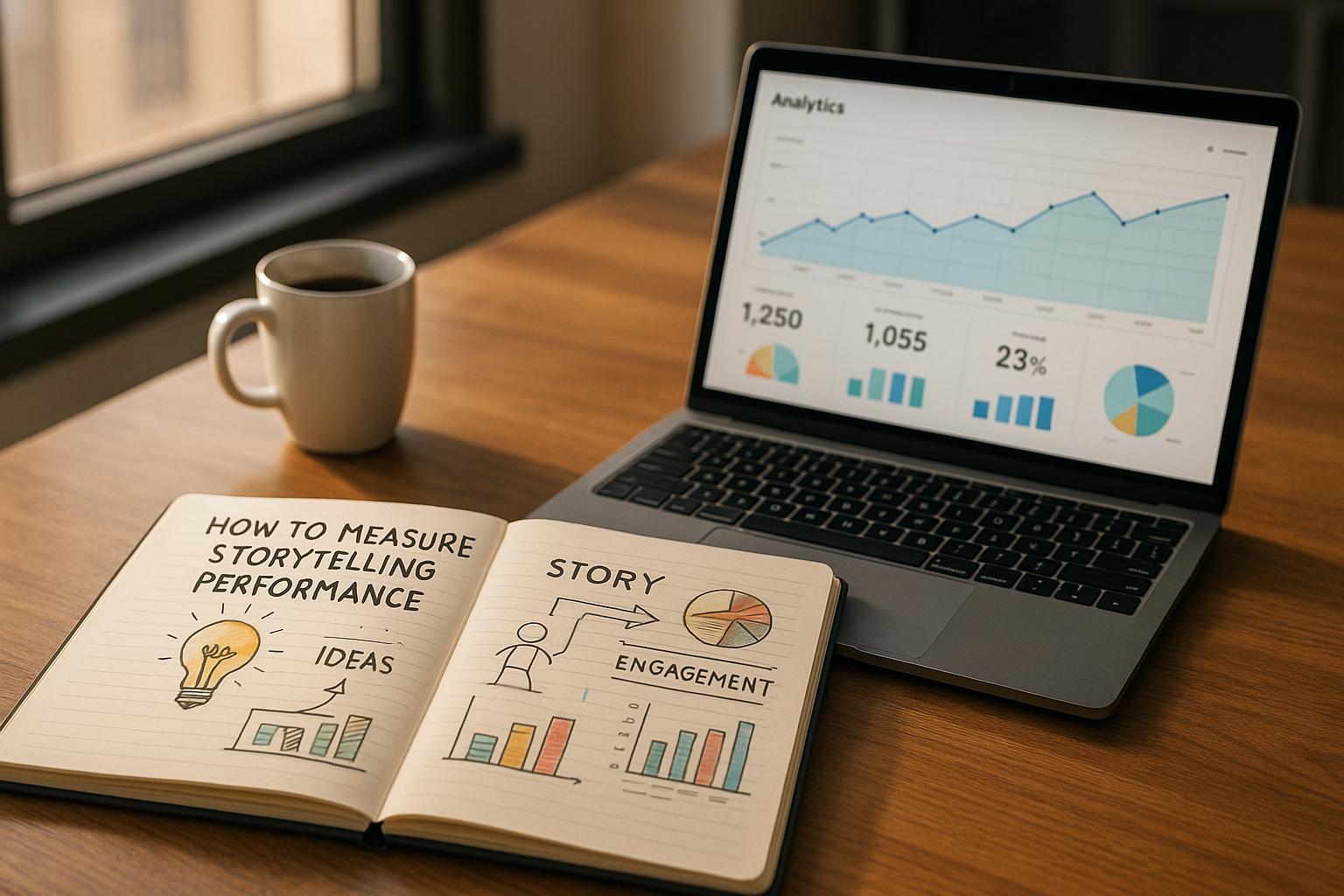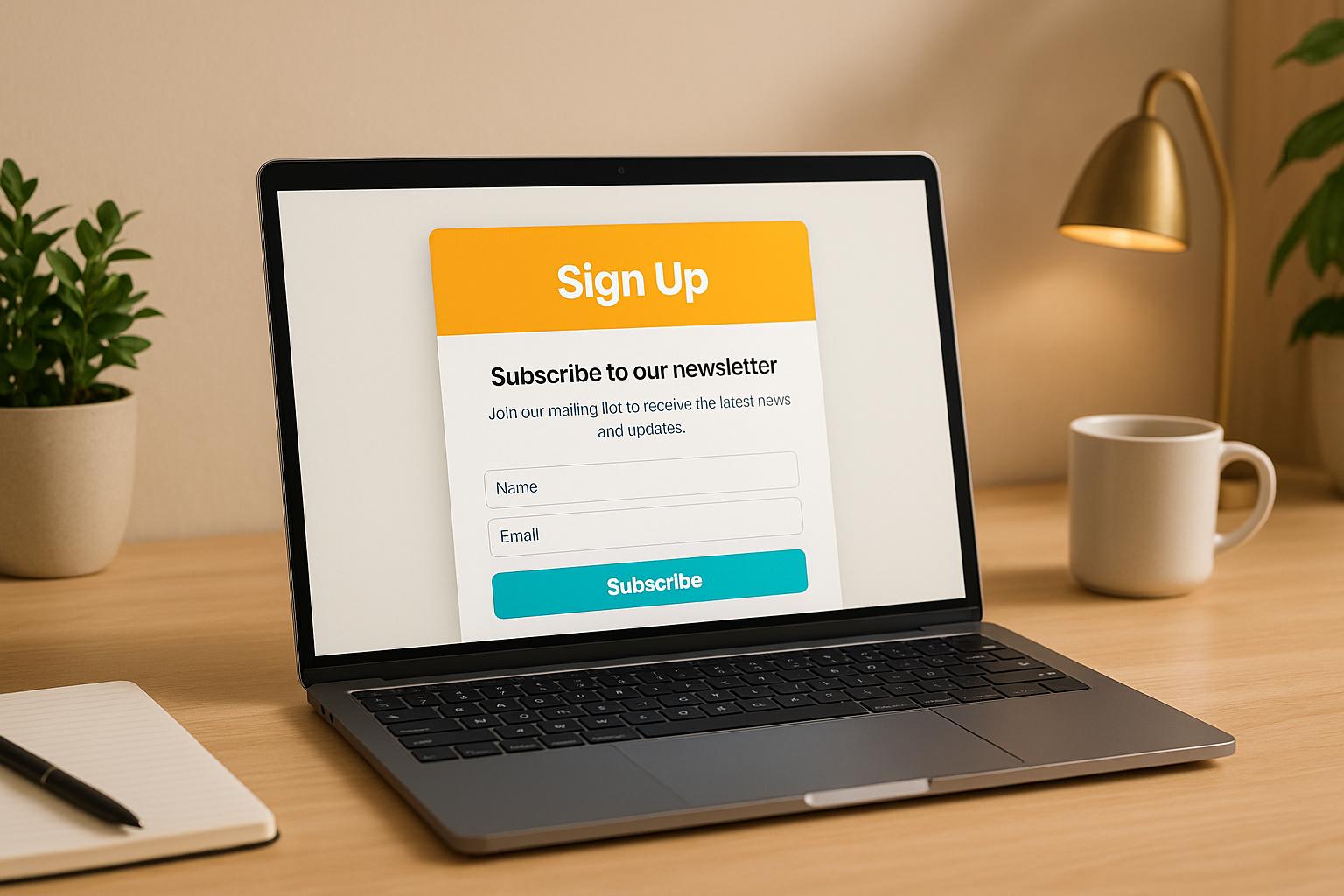Want to close more deals and improve your sales process? CRM systems can help.
A CRM organizes customer data, tracks leads, and automates tasks at every stage of the sales funnel. Here’s how it works:
- Awareness: Capture and score leads to focus on high-quality prospects.
- Interest: Automate follow-ups to respond faster and keep leads engaged.
- Decision: Use tailored communication to boost engagement and build trust.
- Action: Automate sales tasks to increase conversion rates and save time.
How to Use a CRM Software to Improve Your Sales Funnel
How CRM Improves Sales Funnel Processes
CRM systems change the game for managing sales funnels by offering tools that streamline lead tracking, personalization, and automation. Here's a closer look at how CRM helps refine these processes.
Effective Lead Tracking and Management
CRMs make it easier for sales teams to keep track of leads and ensure no opportunities slip through the cracks. Acting as a central hub, these platforms simplify customer interaction management and help move prospects through the funnel more efficiently.
Here are some ways CRM tools improve lead management:
| Feature | What It Does | How It Helps Your Business |
|---|---|---|
| Predictive Analytics | Uses AI to score leads | Pinpoints which leads are most likely to convert |
| Lead Segmentation | Groups leads dynamically | Makes it easier to target specific strategies |
| Pipeline Visibility | Provides real-time updates | Helps avoid missed opportunities |
| Performance Metrics | Offers detailed analytics | Identifies areas to improve funnel efficiency |
Delivering Personalized Customer Experiences
With CRM data, sales teams can better understand customer preferences and pain points. This makes it easier to tailor approaches, especially during the interest and decision-making stages of the funnel.
Sales teams can use CRM insights to:
- Adjust communication style, timing, and offers for individual customers or groups
- Analyze engagement trends to refine outreach efforts
- Create content that resonates with specific customer segments
- Track and improve conversion rates at each stage of the funnel
Streamlining Sales Tasks with Automation
CRMs also save time by automating repetitive tasks. This ensures accuracy and frees up sales teams to focus on more strategic activities.
Some common tasks CRMs can automate include:
- Sending follow-up emails
- Scoring and qualifying leads
- Assigning tasks and setting reminders
- Generating performance reports
Steps to Connect CRM with Sales Funnel
Connecting your CRM to your sales funnel helps you keep track of prospects effectively, automate tasks, and measure performance with precision.
Identify the Stages of Your Sales Funnel
Define the key stages of your sales funnel - awareness, interest, decision, and action - and set them up in your CRM. For each stage, establish tracking parameters and triggers to monitor progress.
Here’s how to align CRM fields with funnel stages:
| Funnel Stage | CRM Setup Suggestions | Metrics to Monitor |
|---|---|---|
| Awareness | Track lead sources and initial contact details | Website traffic, form completions |
| Interest | Monitor engagement levels and content interactions | Email opens, resource downloads |
| Decision | Create opportunities and track proposals | Scheduled meetings, quote requests |
| Action | Focus on deal closures and conversions | Win rates, deal sizes |
Set Up Automation and Workflows
Streamline repetitive tasks in your CRM with automation. This ensures consistent follow-ups and accurate data management. Use workflows triggered by customer actions or time-based rules to keep things moving.
Here are some key automation ideas:
- Lead Assignment: Automatically route leads to the right sales reps based on criteria like industry or location.
- Follow-up Sequences: Schedule emails or calls based on customer actions, such as downloading a guide or attending a webinar.
- Status Updates: Move leads through funnel stages automatically when they meet specific criteria.
Track and Improve Funnel Performance
Use your CRM’s analytics tools to evaluate how well your funnel is performing. Focus on spotting weak areas where prospects tend to drop off.
| Metric Type | What to Measure | Why It’s Important |
|---|---|---|
| Conversion Rates | How prospects move from one stage to the next | Pinpoints weak areas in the funnel |
| Time in Stage | How long leads stay in each stage | Shows where leads are getting stuck |
| Drop-off Points | Stages with the highest exit rates | Indicates areas needing adjustments |
| ROI Tracking | Cost per conversion | Evaluates overall funnel efficiency |
sbb-itb-a84ebc4
Tips for Aligning CRM with Sales Funnels
Keep CRM Data Accurate
Keeping your CRM data up-to-date is crucial for managing your sales funnel effectively. It provides reliable insights that guide decision-making. To achieve this, set clear guidelines for data entry and regular maintenance.
Here’s a breakdown of key data types and how often they should be updated:
| Data Type | Impact on Sales Funnel | Update Frequency |
|---|---|---|
| Contact Information | Ensures accurate communication | Monthly |
| Interaction History | Supports personalized outreach | Real-time |
| Lead Scoring Data | Helps prioritize leads | Weekly |
| Purchase History | Identifies upsell opportunities | After each transaction |
Train Your Team Regularly
Your CRM system is only as effective as the team using it. Regular training ensures your team knows how to use the system to move leads through the funnel. In fact, teams with consistent training show a 40% boost in lead qualification accuracy.
Focus on these key areas during training:
- Data Entry Standards: Teach consistent methods for updating customer details.
- Using Automation and Analytics: Show how to leverage tools for better outcomes. Role-playing exercises can help simulate real-world CRM scenarios for practice.
Use CRM Insights to Improve Funnels
CRM insights can transform your sales funnel. According to Pipedrive analytics, businesses that use CRM data to refine their funnels experience a 25% increase in conversions. The key is turning data into actionable strategies.
Track these important metrics:
| Metric | What It Reveals | How to Use It |
|---|---|---|
| Stage Conversion Rates | Shows how well each stage works | Fine-tune weak stages |
| Time in Stage | Identifies bottlenecks | Eliminate delays |
| Engagement Patterns | Highlights customer preferences | Adjust communication |
| Drop-off Points | Pinpoints areas for improvement | Boost retention |
"By integrating lead scoring with CRM, businesses can focus their efforts on nurturing leads that are more likely to convert, thus improving sales funnel performance."
Tools and Resources for Better Sales Funnels
To get the most out of your sales funnels, you need tools that work smoothly with your CRM. The right tools can help streamline processes, improve lead nurturing, and boost conversions at every stage of the funnel.
Here’s a breakdown of how different tools can enhance your CRM system:
| Tool Category | How It Works with CRM | Benefits |
|---|---|---|
| Email Marketing | Automates workflows based on triggers | Tailored campaigns that respond to user behavior |
| Analytics Tools | Tracks funnel performance | Real-time adjustments to improve conversion rates |
| Lead Scoring | Automates lead qualification | Helps prioritize leads more effectively |
| Automation Platforms | Manages multi-channel workflows | Cuts down on manual tasks in the sales process |
Marketing Funnels Directory

The Marketing Funnels Directory is a go-to resource for businesses looking to improve CRM-driven sales funnels. It offers a selection of tools for social media, ads, content, and B2B funnels.
| Resource Type | Use Case | CRM Integration Advantages |
|---|---|---|
| Social Media Tools | Lead Generation | Automatically enriches prospect profiles |
| Ad Management | Customer Acquisition | Tracks ROI and optimizes in real time |
| Content Resources | Lead Nurturing | Scores leads based on engagement levels |
| B2B Solutions | Enterprise Sales | Tracks opportunities and forecasts outcomes |
"A CRM funnel can help your company improve sales by effectively utilizing the information stored on current and potential customers." - Linda Pophal, Business News Daily.
When selecting tools, focus on how well they integrate with your CRM, whether they can scale with your business, and their analytics and automation capabilities. With the right tools, your CRM can drive better results, ensuring every stage of your sales funnel performs efficiently.
Conclusion: Why CRM Matters for Sales Funnels
CRM systems play a critical role in managing and optimizing sales funnels, helping businesses transform prospects into loyal customers. By centralizing customer data and automating essential tasks, these platforms make sales journeys more efficient and tailored to individual needs.
With CRM integration, businesses gain several advantages: better lead tracking and qualification, smoother workflows through automation, and increased team productivity. Aligning CRM data with each funnel stage helps identify bottlenecks, boost engagement, and improve conversion rates.
When used effectively, CRM tools can elevate sales performance. Features like lead scoring allow teams to focus on high-value opportunities, while automation ensures timely follow-ups. Additionally, CRM insights help refine strategies, making sales processes more streamlined and customer-focused.


